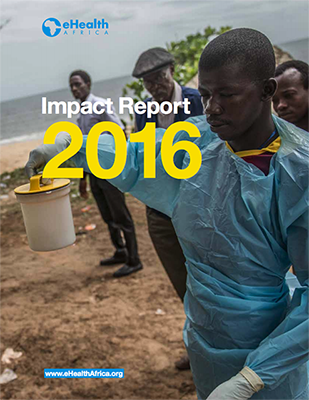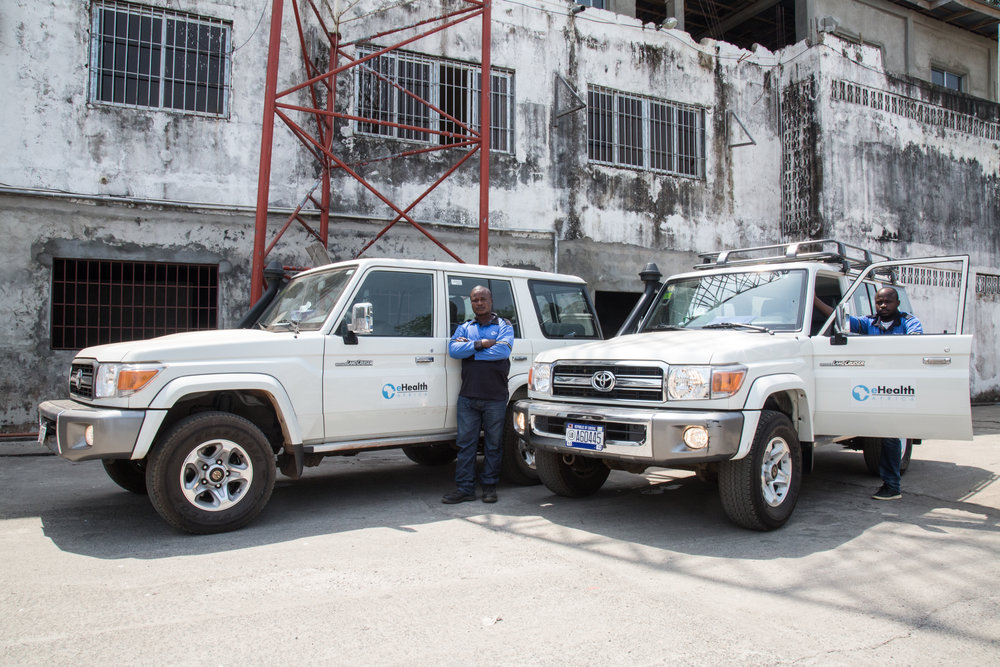
Written by Elizabeth Shelley
eHealth Africa’s (eHA) 2016 Impact Report illustrates the multifaceted ways in which eHA partners with Ministries of Health (MOH) to improve healthcare for underserved populations across West Africa. Through the integration of information, technology, and logistics, eHA has been working to build stronger health systems that respond to local needs throughout the region since 2009.
As a result of eHA’s work in 2016:
- 958,030 women and children received free medicines in Northern Nigeria;
- Over 30,000 people benefited from an Integrated Community Health pilot in Guinea; and
- Over 13 million life-saving vaccines were delivered to remote health facilities;
Following our unprecedented expansion into West African countries in response to the 2014-2016 Ebola outbreak, eHA spent much of 2016 establishing an integrated approach to improving health services region-wide. eHA has consolidated its support across five focus areas: Health Delivery Systems; Public Health Emergency Management Systems, Disease Surveillance Systems, Laboratory and Diagnostic Systems, and Nutrition & Food Security.
Within each of these focus areas, eHA is working to provide innovative technological solutions using data-driven metrics for success, while simultaneously building local capacity to use and maintain these systems. For example, over the course of 2016, eHA leveraged having the largest geographic information system (GIS) team in West Africa to extend its support to the Nigerian government in identifying hard-to-reach communities which are chronically omitted from health service deliveries. eHA is also tracking deliveries of vaccines and other medical supplies to these regions using our own geospatial technology.
These GIS tools are also enhancing the effectiveness of vaccine delivery campaigns to ensure that no households, and thus no children, are missed. As a result:
- Over 1,000 settlements in remote areas were identified and mapped;
- 13.3 million antigens were delivered to health facilities in these regions; and
- Northern Nigeria’s Borno state experienced a 17% increase in coverage by vaccination teams between October and December 2016.

eHA’s strategic model reflects a deep commitment to an integrated approach in global health and development work. Our experience working as an implementer and a leader in this regard allows us to provide value, responsiveness, and scale in our work. We look to continue providing technological solutions that respond to local needs and provide underserved communities with tools to lead healthier lives.
The 2016 Annual Impact Report is now available online. If you are interested in monthly updates on eHA’s work, please sign up for our newsletter.
